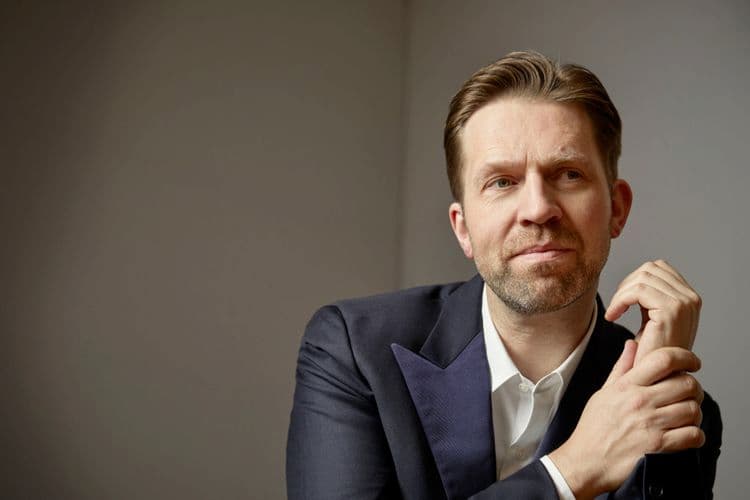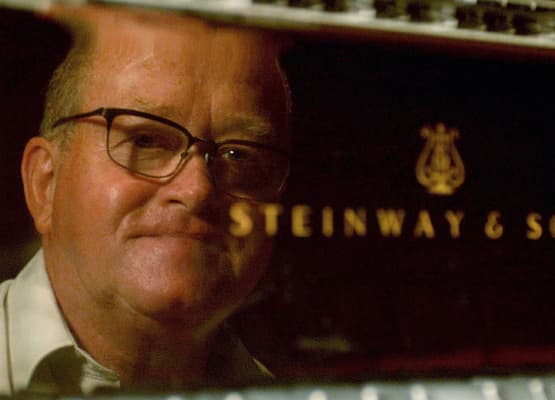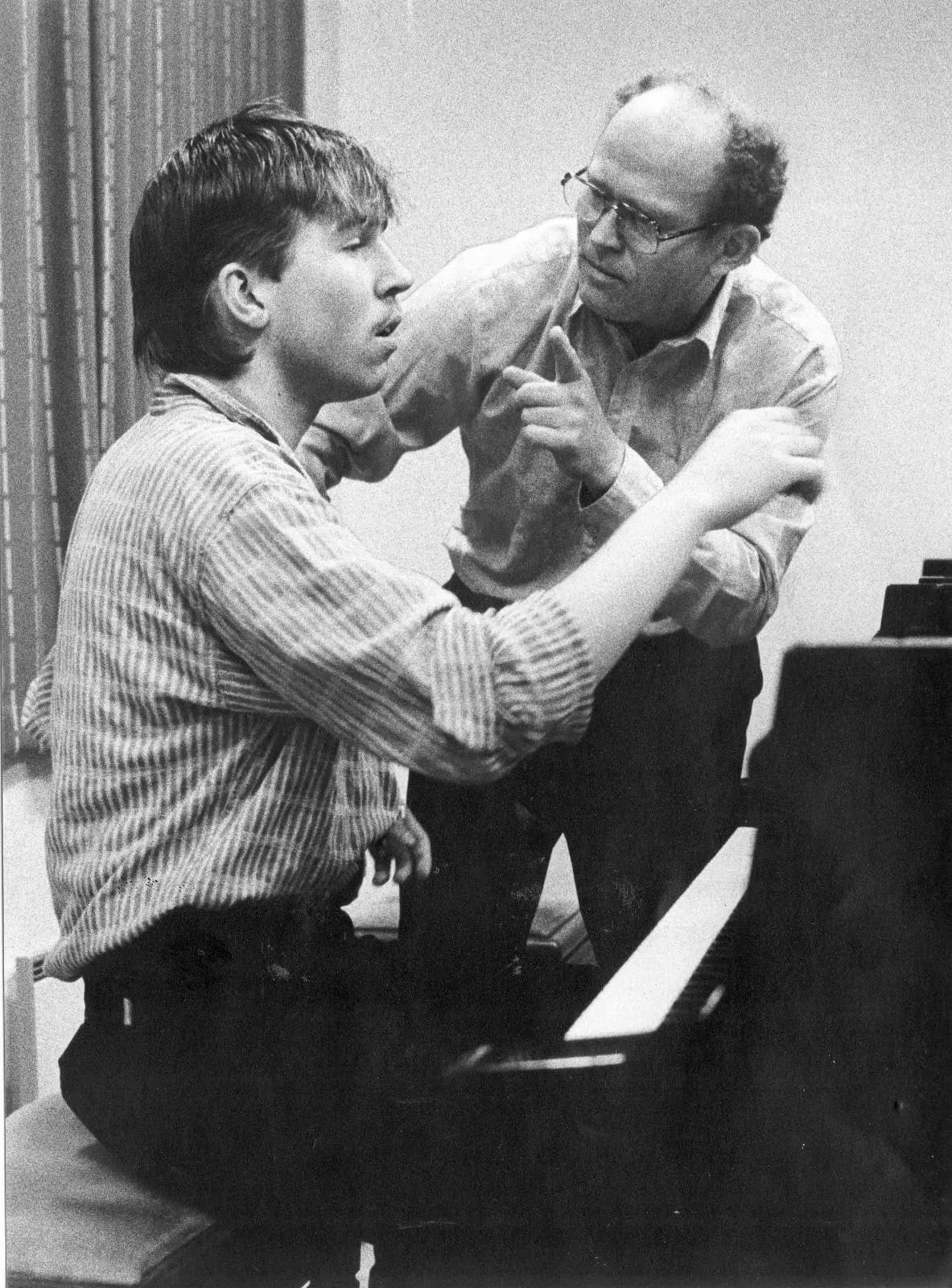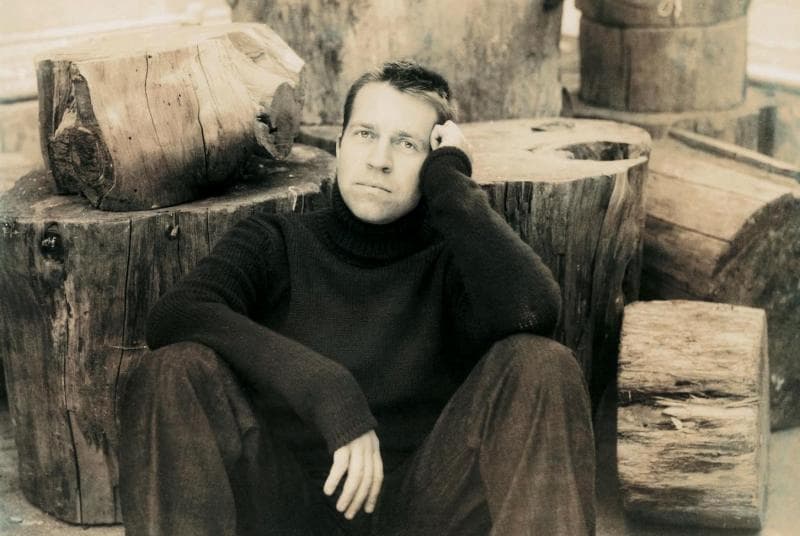A renowned and celebrated champion of the works of Edvard Grieg, Leif Ove Andsnes has been described as a “pianist of magisterial elegance, power, and insight,” and “one of the most gifted musicians of his generation.” He performs in the world’s leading concert hall and with its foremost orchestras, and he has compiled an extensive and highly lauded discography. He has garnered eleven Grammy nominations and seven Gramophone Awards, and received honorary degrees from New York’s Juilliard School and Norway’s Universities of Bergen and Oslo.
Leif Ove Andsnes Plays Grieg’s Piano Concerto in A minor, Op. 16
Norwegian Countryside

Leif Ove Andsnes
Leif Ove Andsnes, born on 7 April 1970, grew up in the Norwegian countryside on the island of Karmøy. From his earliest memories, he was passionately in love with music. “From the age of two,” he explained, “I could not imagine a world without music as it was really like breathing air.” Both of his parents were music teachers and capable pianists, and Leif Ove asked his parents for piano lessons at the age of 4.
He took lessons with his parents for three years, “but then I became too bored with them and I got another teacher, who had been educated in Oslo, in my hometown.” Andsnes’ early musical education took place in a music school funded by the state. “Anyone who wants to can take classes, regardless of their personal financial situation.” Growing up in the countryside, Andsnes had no friends who played the piano or worked on music, and he certainly wasn’t surrounded by professional musicians.
Jean Sibelius: 10 Pieces, Op. 24 “Excerpts” (Leif Ove Andsnes, piano)
Jiri Hlinka

Jiri Hlinka
Andsnes studied at the local music school for eight years, until he was admitted to the conservatory in Bergen to study with Jiri Hlinka. Born in Prague, Hlinka played for Heinrich Neuhaus and took lessons from Sviatoslav Richter and Emil Gilels. He was one of the finalists of the Tchaikovsky Competition in Moscow, but a chronic medical condition in his arm cut short his pianist career. He became a Norwegian citizen in 1982, and he devoted the rest of his life to music education.
On first meeting Hlinka, Andsnes exclaimed “I met a Slavic bomb of a Czech that taught me that life and death is to be found in every single note!” Clearly, Hlinka was rather passionate and Andsnes began to consider music his life. He recalls, “I came out of Prof. Hlinka’s lesson and the first thing I wanted to do was to go straight into the practice room and work on what he had told me. It cannot get much better than that. Then you are really filled up with impulses and inspirations.”
Leif Ove Andsnes Plays Mozart’s Piano Concerto No. 21, K. 467 “Allegro vivace”
Natural Pianism

Jiri Hlinka and Leif Ove Andsnes
Above all, Hlinka inspired a very natural and intuitive way of playing the piano. Andsnes remembers that “he often suggested very surprising fingerings to me, which I never would have thought of. He explained how you can use the thumb as a sort of base for the entire hand, or that the weak fourth finger can be the strongest finger for some passages, if you only use it correctly.”
Hlinka also inspired a love for chamber music in his talented charge, as he introduced lesser-known repertoire such as Sibelius, Janáček and Smetana to Andsnes. “When I started at the conservatory, I discovered chamber music at the same time as solo,” he remembers. “Often I would use as much time for the song cycles of Mussorgsky and Schumann or the viola sonatas of Brahms as I would for concertos and solo pieces. In those days, there wasn’t this pressure that you have to do this and that to become a solo pianist.”
Robert Schumann: Fantasie in C Major, Op. 17 (Leif Ove Andsnes, piano)
Premiere and Future

Leif Ove Andsnes
Andsnes gave his public debut with four recitals in Oslo, Bergen, Stavanger, and his hometown Karmøy at the age of seventeen. One year later he won second place at the Eurovision Competition, and he played the Grieg piano concerto at the Bergen Festival a couple of days later. Andsnes has never stopped developing as a musician. In his opinion, it is important to have a long musical life that you enjoy, as not “everything has to start with a climax. A musician should first develop as a person, then the career can come.”
Andsnes is not at all concerned that classical music audiences are about to become extinct. He strongly believes that interest in classical music is awakened only “after you have reached a certain age, after some calm has come to your life.” However, he does agree that it is becoming increasingly difficult to prepare the young generation educationally for this step into musical life. “It is a shame when music is relegated to being background noise trickling from speakers at every corner of daily life. The meaningful connection with music is something that has to be learned.”
For more of the best in classical music, sign up for our E-Newsletter
